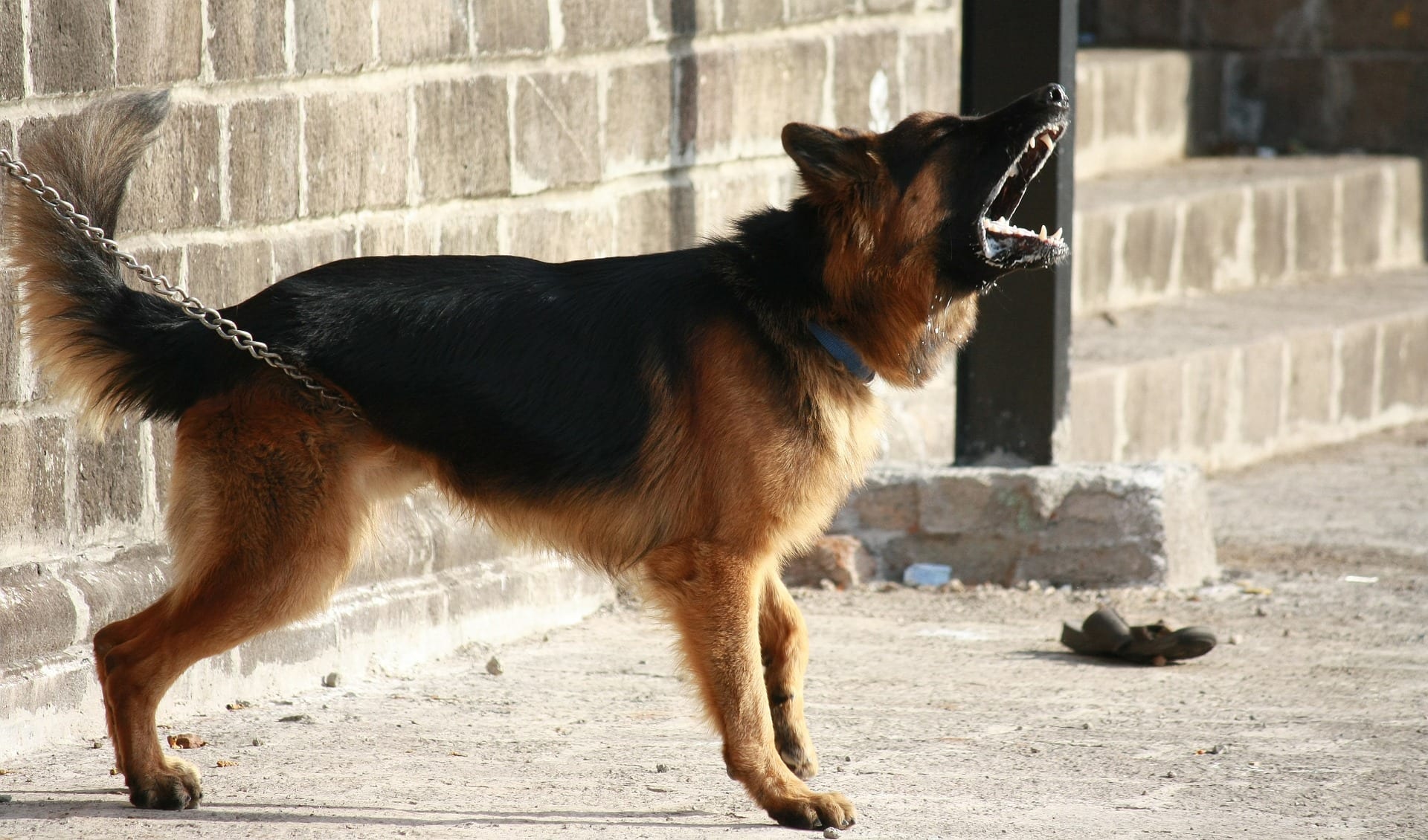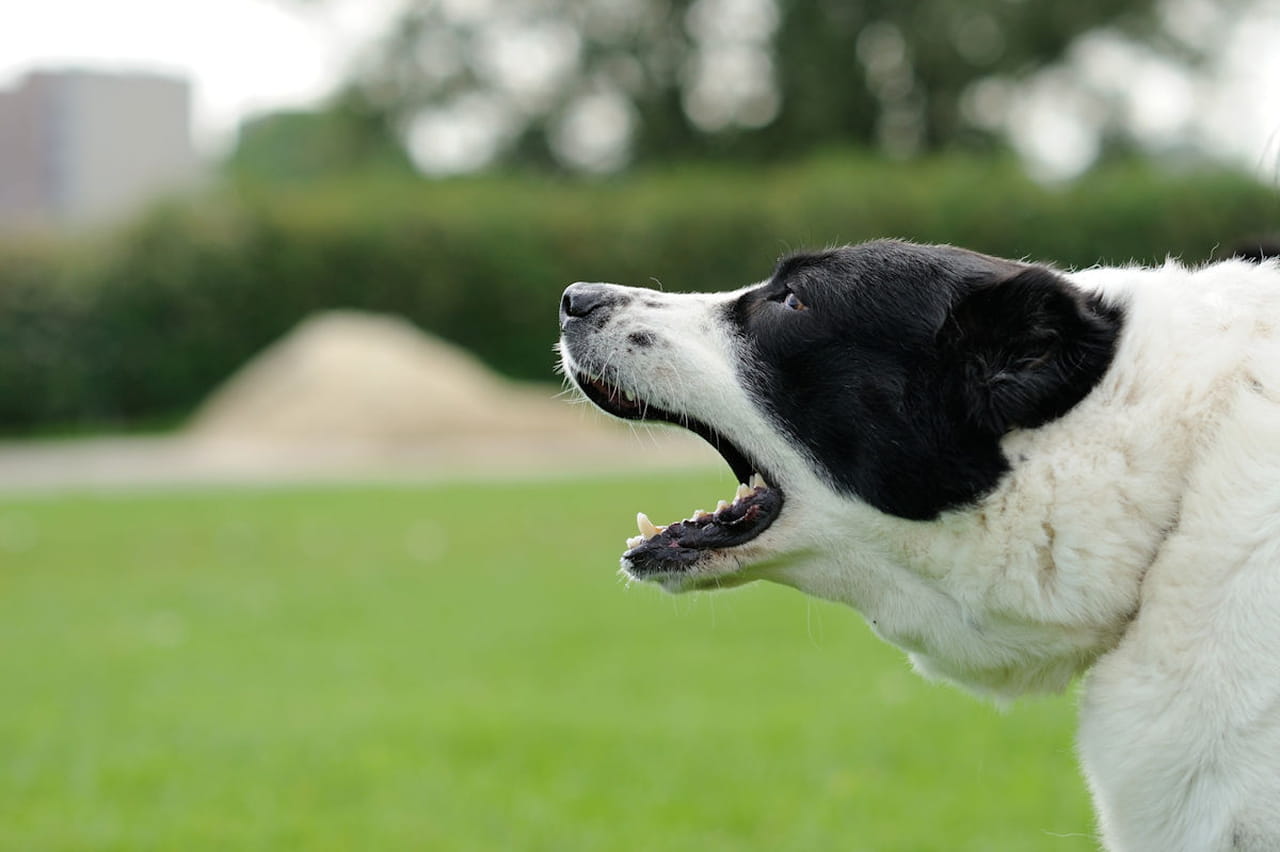Barking dog meaning
You have just welcomed a new companion into your home. Unfortunately, after the initial excitement, you realize that your dog is barking more and more and causing real noise pollution.
What is the cause of this behavior? How can you stop it? Is it serious?
Barking dog: What is barking?
The dog's bark is manifested by the contraction of its vocal cords. Together with body postures, it represents the dog's main means of communication.
Therefore, it is intentional and primarily intended to send a message to the environment, whether it is composed of other animals or humans.
Some breeds and dogs are more barkers than others, depending on their character and education.
A barking dog can become a noise nuisance for you as well as for your neighbor (who in some cases, will not hesitate to send you a formal notice or even call the police).
This is why you must be very vigilant and observe the puppies in a pet shop or at a breeder's in order to make the right choice and avoid many problems later on.
Why does a dog bark?
A dog that barks may do so for several reasons:
to attract attention or to signal its presence.
• to warn of an intruder (guard dog) or prey (hunting dog).
• in the excitement of play.
• out of fear: in front of a noise or a foreign person.
• this fear is quickly transformed into a threat to express boredom: the dog does not have enough games or physical activity.
• to manifest a behavioral disorder: hyperactivity, anxiety, relationship problem.

One of the causes of a dog that barks excessively: the syndrome hypersensitivity-hyperactivity
Hypersensitivity-Hyperactivity Syndrome is a problem with self-controls that are normally acquired around 6 weeks of age. If your dog suffers from it, it can be dangerous in the presence of elderly people or children.
This syndrome is mainly caused either by incomplete mothering (the mother could not take care of her puppy for multiple reasons ranging from weaning too early to a too large litter), or by a brain dysfunction.
Its characteristics are:
• a lot of oral activity: the dog has a destructive behaviour (biting or chewing on any object within its reach)
• the lack of control of the excitement during play: the dog may bump or push the person playing with him. It does not know how to stop
• sleep problems: the dog sleeps little, is always active in reaction to the slightest noise or external movement
• attention deficit: compulsive behavior, inability to concentrate during training
• emotional problems: phobia, separation anxiety...
A dog that barks can therefore suffer from this syndrome and will require special attention.
The different solutions
A dog that barks a lot is never a trivial thing.
Before asking yourself how to stop your dog from barking, consult your veterinarian in order to rule out any pathological problem, especially hypothyroidism, which is often confused with hypersensitivity-hyperactivity syndrome.
Once the cause of the barking has been identified, it will always be easier to find a suitable solution. This can be done by a dog trainer or by a simple training session that you can do at home.
How to deal with a dog that barks too much
Never yell and stay calm. Never punish. Instead, use positive reinforcement with a reward (treat, pet or vocal encouragement) to be given each time your dog complies with your command to stop barking.
Gradually remove the reward until the dog obeys the first command.

Correcting unwanted behavior
To make learning the expected behavior more fun, you can also use a clicker to train a dog that barks too much.
Also consider diverting his attention through play. Be aware that this technique only works with dogs that do not bark for attention.
If this is the case with your dog, try to ignore him, remembering that even if you reprimand him, your dog will take this as proof of attention and will therefore continue with this annoying behavior.
CAUTION: Anti-bark collars or anti-bark boxes should NOT be the number one solution to barking.
Recalls on the education of the dog
This is of course fundamental. A few rules must be followed:
• never encourage your dog to bark or chew
• expose your dog to all outside noises from a young age
• teach your dog to obey your commands quickly, especially to stop barking ("be quiet", "stop barking"...)
• gradually get him used to solitude by leaving the room for a few minutes and then gradually extending this time
If your dog was separated from his mother at a young age, don't hesitate to put him in contact with an older animal who will complete his education.
Avoid negative conditioning with punishment or yelling.


